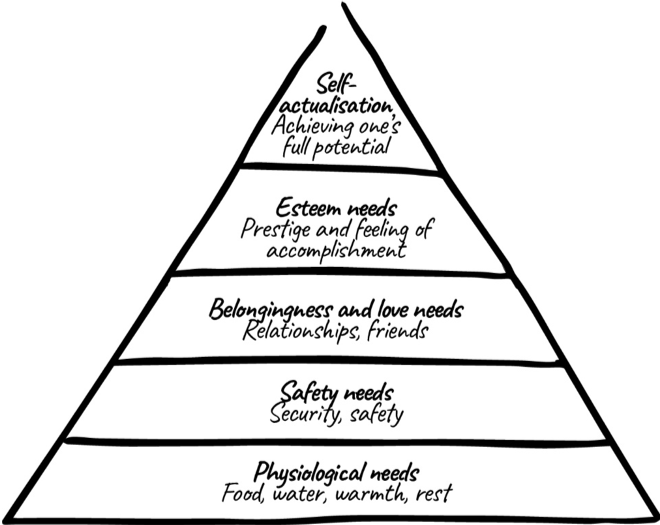When I look around me and the way we work, I often wonder, ‘How did we get here?’
I see overwhelmed people so caught up in the do, do, doing of their role that they are making themselves ill. What is the human cost of ‘digging deep’ and ‘pushing through’ in order to reach targets? There is no focus on achieving balance when busyness is what gets rewarded. Many people just survive the week, rather than thrive. Many are not even able to replenish at weekends as they find the demands of their ‘day job’ overflowing into this valuable space. I hear people saying, ‘There must be a different way’ but they are so caught up in the melee that they can’t find the time or energy to search it out. Instead of being able to focus on what inspires and motivates them and the people they work with, they are compromising themselves to meet what the company demands. It is no wonder so many people talk about falling out of love with their role, their work and the companies they once admired.
If you see yourself in the description above, this book is for you.
Transport yourself to a future time when you have real clarity, confidence and conviction in your role. Imagine the rewards of finding harmony between your work and home lives. Imagine there being alignment between what drives you and what drives the company you work for. Everything you do feels focused and meaningful. Imagine being so lost in your work, in such a glorious state of flow, that when you emerge, you have achieved greater things than you imagined possible. You feel energised and refreshed. Stand in that place for a while. Breathe it in. See it, smell it, hear it, taste it. Imagine how you would feel about your role and your colleagues from that vantage point. Envisage how you would show up at work; how much more you would achieve; and all with more ease.
This book will show you how to make this vision a reality.
The world of work is changing
How has the world of work changed during your lifetime, during that of your parents, and if you are lucky enough to still have them, that of your grandparents? In just three generations what work is done and how it is done has changed beyond recognition. Dig beneath the surface and we also see an evolution in why people choose to do the work they do; in other words, what motivates them.
Much has been written about what motivates different generations, yet, as we will see in Chapter 2, motivation is much more individual than simply being derived from the generation you are born into. However, this generational view is a useful starting point as it gives a flavour for how the world of work has transformed, and along with it, how the nature of the rewards offered by business have changed too.
For ‘traditionalists’ (those born between 1928 and 1945) loyalty, job titles and money were the focus. With the ‘baby boomers’ (born between 1946 and 1964) ambition and goal-orientation arrived. Status, expertise and ‘perks of the job’ were, and still are, valued by this generation. Then Generation X (born between 1965 and 1980) came along with their entrepreneurial spirit, demand for greater independence and work-life balance. For them, promotion on merit, not on years served, are important. Flexibility, recognition from bosses and financial gain all became important work-based rewards. Then came the Millennials (born after 1980), our most tech savvy generation. Organisational culture is paramount to this generation, along with opportunities for collaboration, flexibility and continuous learning. Millennials regularly seek feedback and need to know how they make a difference. This generation is the first to consistently seek self-actualisation (the process of realising one’s full potential) in the workplace, whereas previous generations probably saw this as something that would only be achieved outside of work. Next, we have Generation Z (born from the late 1990s onwards), who are pushing the boundaries even further of what they want work to provide for them.
In a sense, each generation has become more sophisticated and more demanding in what they want from work, and more self-aware – building on the values and expectations of the generations that went before. I see this represented in Maslow’s Hierarchy of Needs.[1] As each ‘lower order’ need was expressed, businesses adopted policies and practices to accommodate many of them. Self-actualisation, therefore, was inevitably going to be the next challenge that businesses needed to satisfy.

[1] Maslow, Abraham, ‘A Theory of Human Motivation’, Psychological Review, 50(4), 1943, pp370-96.
Maslow’s Hierarchy of Needs
Businesses are now faced with several challenges around motivation. Firstly, how do businesses meet the needs for self-actualisation in the workplace, when to date they have been more focused on profit and targets than on purpose and meaning? Secondly, with five generations working alongside each other (with Gen Z just making an appearance), how does a business harness the motivation of a diverse workforce? Now, more than ever, businesses need to get to grips with the individual motivations of its people and not just offer blanket reward packages and opportunities. One thing is for certain, most companies are not yet meeting these challenges – in fact, they are falling woefully short.

